

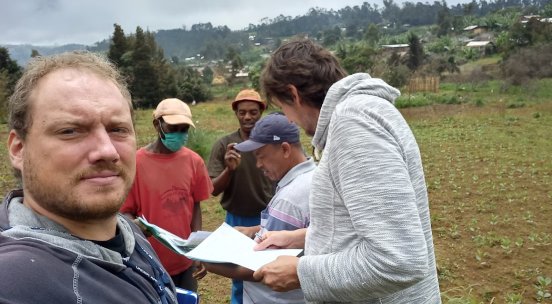
Our colleague and friend Tomáš Kudera is definitely not a newcomer to the faculty. He completed his PhD in Tropical Agrobiology and Bioresource Management at FTA in March 2024
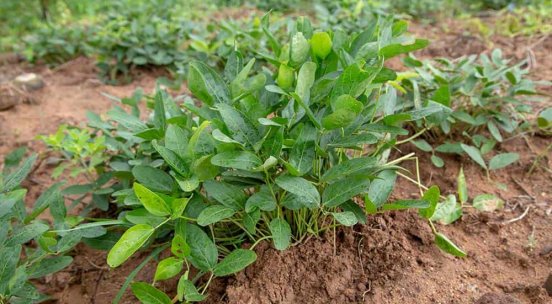
Bambara groundnut is a climate-resilient yet underutilized legume crop with strong potential to enhance food security in Sub-Saharan Africa. However, its productivity remains low due to poor soil management and limited focus on beneficial microbial associations.
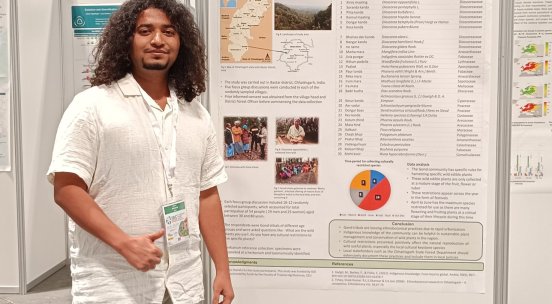
Nishanth Gurav, the TRIBE Lab member, presented his research at the XX International Botanical Congress in Madrid, Spain.
The International Botanical Congress is held every 5 years and brings together botanists, mycologists and other transdisciplinary researchers working in field of plant taxonomy. This year's key topics included biodiversity conservation, systematics, phylogenetics, biogeography and evolution. Nishant presented the poster entitled Cultural practices and taboos of the Gond community in the central India and their role in sustaining wild plants. The presented topic is a part of his Ph.D. research focusing on ethnobiology of wild food plants of Gond community in Chhattisgarh, India. During the conference, Nishant also participated in several workshops related to research approaches in ethnobotanical and taxonomic research.
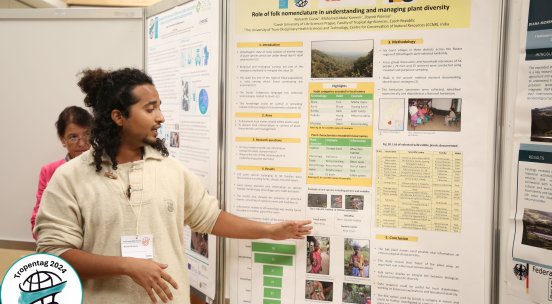
Nishanth Gurav, the TRIBE Lab member, presented his research at the Tropentag 2024, held from September 11th – 13th at the University of Natural Resources and Life Sciences, Vienna (BOKU), Austria.
The Tropentag is a development-oriented trans- and interdisciplinary conference. This year’s theme was Explore opportunities... for managing natural resources and a better life for all. It involved discussions on research about transformation in agriculture and agroecology, livestock, food sovereignty, forestry, water and environment, socio-ecology, gender equality, and related social sciences in the context of rural development, sustainable natural resources management, and poverty alleviation worldwide.
Nishant presented a poster titled Role of folk nomenclature in understanding and managing plant diversity. The poster presentation was also highlighted on the Tropentag student reporters blog.
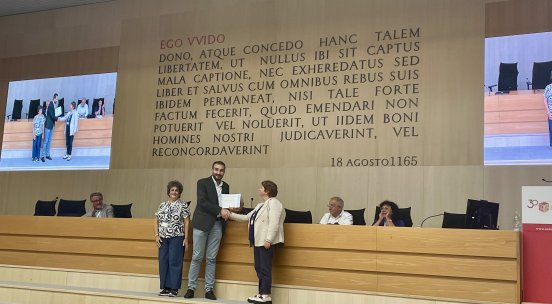
Our colleague Dr. Naji Sulaiman, a former key member of TRIBE lab, won the International Doctoral Award of the Italian Botanical Society for 2024. The ceremony took place during the 119th Congress of the Italian Botanical Society, held at the University of Teramo, Italy, from 11 to 13 September. The prestigious award recognizes outstanding PhD theses defended between 2022 and 2024 on topics related to General Botany, Systematic Botany, Environmental and Applied Botany, and Pharmaceutical Botany. Naji’s thesis, elaborated during his doctoral research in TRIBE Lab, focused on multiple aspects (botanical, food-related, socioeconomic, sociocultural, and sustainable) of wild plant use during the conflict in Syria, and it was successfully defended in March 2023. Naji is currently working as an assistant professor of Environmental and Applied Botany at the University of Gastronomic Sciences, Italy.
Congratulations!
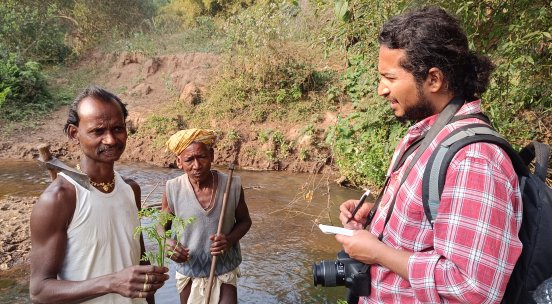
We are proud to announce that Nishanth Gurav, a 3rd-year Ph.D. candidate at the Tropical Botany and Ethnobiology Lab (TRIBE), Faculty of Tropical AgriSciences (FTA), Czech University of Life Sciences Prague, has been selected as a Student Ambassador and a member of the student committee of the prestigious Society for Ethnobotany (SEB).
Nishanth hails from India, and his current research focuses on sustainable practices and the folk taxonomy of wild edible plants used by the Gond tribal communities in the Bastar region of India. He has extensive experience working with local communities, having developed People’s Biodiversity Registers (PBR) for over 70 villages in the states of Karnataka and Chhattisgarh.
As a member of the SEB student committee (serving from June 2024 to June 2026), Nishanth will be involved in managing the committee’s social media pages and student blog, as well as supporting the organization of student events and initiatives related to ethnobotanical research.
We congratulate Nishanth on this significant achievement and wish him continued success in his future endeavors!
For more information on SEB, visit SEB's website.

Enhancement of the long-term sustainability of the collection and commercialisation of local medicinal and aromatic plants. In March 2024, representatives of the Faculty of Tropical AgriSciences, in collaboration with colleagues from Rhine-Waal University (Germany) and the University of Gastronomic Sciences
In Kyrgyzstan, most farming systems are based on animal husbandry, which depends on mixtures of crops and pastures around settlements and higher-elevation summer pastures. These farms face the problems of insufficient fodder production and pasture degradation due to overgrazing, resulting in low livestock productivity and reduced household incomes. This study used multivariate analysis to develop a consistent typology of smallholder farms in the Tien Shan mountainous range.
The paper, published in the journal Land, results from a long-term cooperation between the University of Central Asia, Rhine-Waal University and CZU Faculty of Tropical AgriSciences (research teams TRIBE and TRACE).
Analyzing data from 235 farm-households and evaluating key classification variables, we identified two distinct farming systems, upper and lower mountain farms, based on socioeconomic and agro-ecological characteristics. Understanding the diversity and types of local farming systems is crucial for setting efficient and suitable policies to enhance livelihood and sustainable use of natural resources.
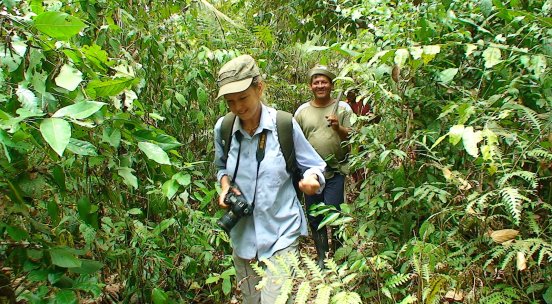
Our colleague and friend Jana Horáčková, a member of TRIBE lab since 2019, has recently defended her PhD thesis entitled Ethnobotanical inventory of Peruvian plants used in folk medicine in the Province of Purus, Peru. The thesis results were published in the form of a scientific paper in the Journal of Ethnobiology and Ethnomedicine (IF=3.404, Q2 in JCR).
Congratulations on behalf of the whole team!
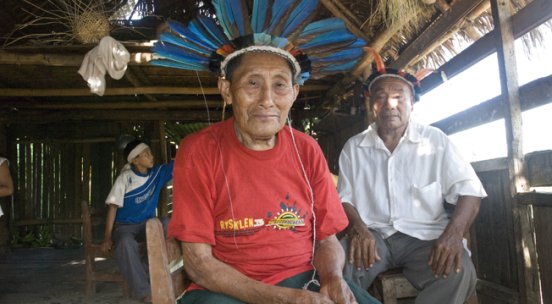
We invite you to the dissertation thesis defence of Mgr. A. Jana Horáčková on “Ethnobotanical inventory of Peruvian plants used in folk medicine in the Province of Purus, Peru” (Department of Crop Sciences and Agroforestry, Tropical Agrobiology and Bioresource Management). Thesis defence will take place on 13th February 2024, 2:00 PM, Meeting Room 313 FTA.
This dissertation is based on primary data on traditional knowledge of medicinal plants in the Purus province of southern Peru, one of the most biodiverse regions on the planet, where ethnobotanical knowledge has been largely under-documented to date. This study provides novel insights into the traditional botanical knowledge of the Cashinahua people. The research involved working with 10 traditional healers and 10 midwives between November 2010 and June 2015, during which a total of 11 months were spent in the field. A total of 467 medicinal species were documented, with a particular focus on highlighting 79 taxa that have received little or no attention in pharmacological research. Among them, the therapeutic activities most frequently reported were related to pregnancy and birth disorders, followed by poisonings, infections, and infestations. The predominant application form was external. These findings could be crucial for future pharmaceutical studies and diversity conservation programs in the region.
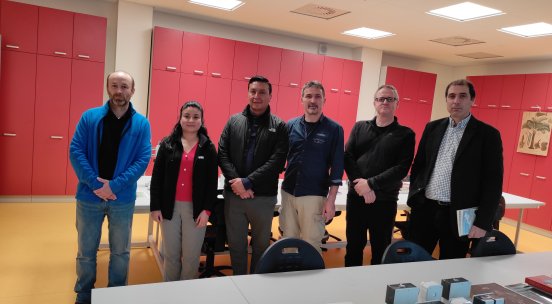
The representatives of the Ecuadorian university La Escuela Superior Politécnica de Chimborazo, Dr. Verónica Caballero-Serrano and Dr. Juan Carlos Carrasco, visited the Tropical Botany and Ethnobiology Lab.
On Friday 6th of October, the doors of the Herbarium of Tropical Botany and Ethnobiology Lab were opened to the public during The Researchers’ Night event.
Garcinia kola Heckel (Clusiaceae) is a multipurpose tree with significant cultural and economic relevance, primarily used as a medicinal plant in West and Central Africa.

Our colleague and friend Naji Sulaiman has been a key internal member of TRIBE lab since 2016. After completing PhD study at our faculty in March 2023, Naji has been recently appointed as an Assistant Professor of Environmental and Applied Botany at the University of Gastronomic Sciences in Pollenzo – Bra, Italy.
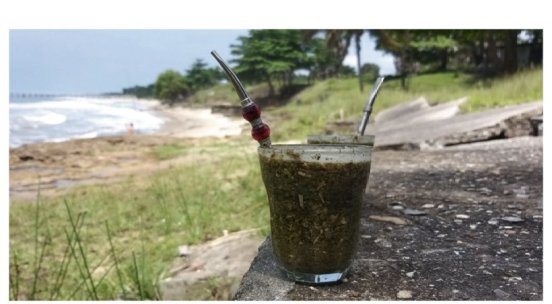
Our colleague Dr. Naji Sulaiman, a former member of TRIBE lab, has been interviewed by the prestigious international newspaper The New York Times.
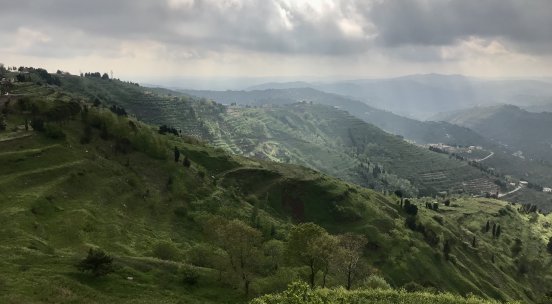
Eleven years of the war in Syria have caused substantial socioeconomic and cultural changes, and have led to widespread food insecurity across the country. Our recently published study in the journal Economic Botany (IF: 2.6, Q2 in Plant Sciences) seeks to scrutinize the impact of socioeconomic factors on the use of wild food plants during the conflict. The study revealed that the number of used species had a significant statistical relationship with informant age and annual household income, while informant gender was a predictor for both reliance on wild plants and frequency of use.
Our colleague and friend Azamat Azarov is a member of TRIBE lab since 2020. Azamat recently defended his PhD thesis entitled Development of methodology for mountainous farming systems classification: Case study of Tien Shan Mountains, Kyrgyzstan. Azamat will continue his career at the Mountain Societies Research Institute of the University of Central Asia in Bishkek, Kyrgyzstan.
Congratulations on behalf of the whole team!
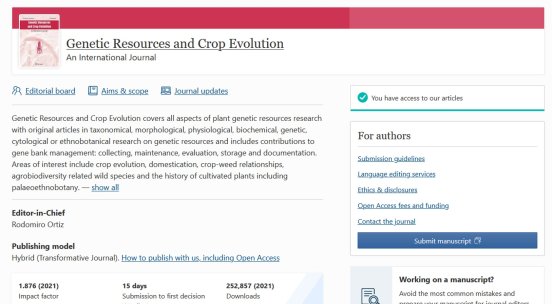
Zbyněk Polesný, the leader of The Tropical Botany and Ethnobiology Lab (TRIBE), has been appointed to the editorial board of the Springer journal Genetic Resources and Crop Evolution (IF 1.876, Q3 in both Agronomy and Plant Sciences) as an associate editor.
Genetic Resources and Crop Evolution covers all aspects of plant genetic resources research with original articles in taxonomical, morphological, physiological, biochemical, genetic, cytological or ethnobotanical research on genetic resources and includes contributions to gene bank management: collecting, maintenance, evaluation, storage and documentation.
Areas of interest include crop evolution, domestication, crop-weed relationships, agrobiodiversity related wild species and the history of cultivated plants including palaeoethnobotany.
The journal also presents short communications on such topics as newly described crop taxa, nomenclatural notes, reports of collecting missions, and evaluation results of gene bank material, as well as book reviews of important publications in the field of genetic resources.
A recent study led by TRIBE team members Jana Horackova, Zbynek Polesny and Naji Sulaiman documents the use of 467 medicinal plant species by the Cashinahua (also known as Huni Kuin) people of the Peruvian Amazon, highlighting 79 wild plant taxa that have been unreported or rarely cited for medicinal use or phytochemical analysis.
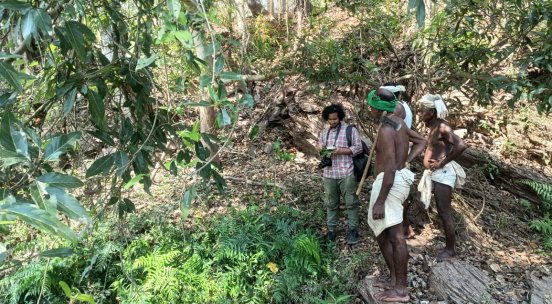
The tribal communities in the Bastar region have been depending on the wild plant resources since time immemorial and therefore have extensive knowledge of identification, management, and use of wild edible plants. However, the ethnobotanical research on indigenous plant knowledge in Central India has been so far focused on medicinal plants, while the traditional ecological knowledge in the context of wild edible plants and community biodiversity management remains neglected.
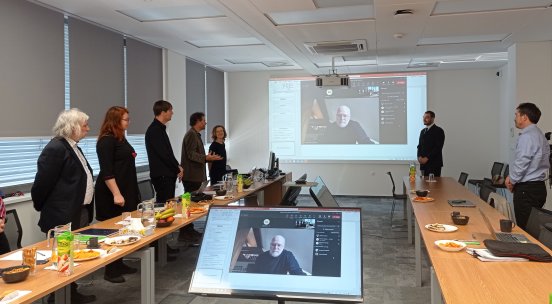
Our colleague and friend Naji Sulaiman, a member of TRIBE lab since 2016, has recently defended his PhD thesis entitled “The Importance of Wild Plants for People during the Conflict in Syria”.
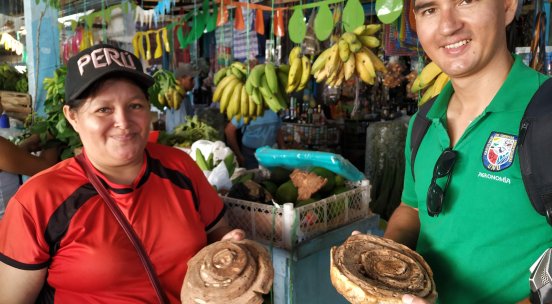
Although a high diversity of tropical root and tuber crops and plants are used by indigenous people in the tropics since ancient times, many of these species are still largely unexplored and neglected by science. In the frame of the dissertation entitled ‘Characterization of plant genetic resources of root and tuber crops used in the Peruvian Amazon’, a member of our team Goldis Perry Davila has recently returned from his field research expedition to Ucayali, San Martín and Loreto Regions. During this phase of his field research, he conducted an ethnobotanical survey of local markets and communities through individual semi-structured interviews and focus group discussions complemented with voucher specimen collection. The preliminary results highlighted 9 key species, namely Calathea allouia, Colocasia esculenta, Dioscorea alata, Dioscorea trifida, Dioscorea bulbifera, Dracontium spruceanum, Pachyrhizus tuberosus and Xanthosoma sagittifolium. All documented species will be further investigated to characterize their intraspecific morphological and genetic variability.
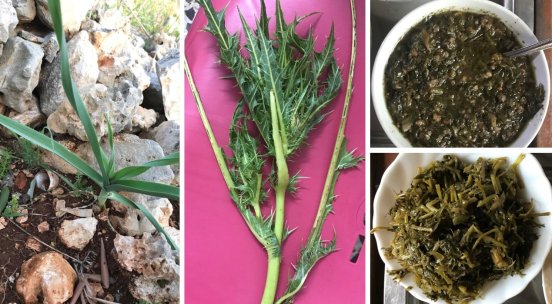
Domestication of new plants is one of the key phenomena in the history of agriculture. Wild plants are the ancestors of current and future crops and the largest reservoir of genetic diversity for crop breeding and improvement. In a recent study, in which TRIBE members Naji Sulaiman and Zbynek Polesny take a leading role, we highlighted a total of 20 wild plant taxa from five war-affected and food-insecure regions (five species from each region). The suggested species have a high possibility of becoming novel crops and may significantly help local communities in their livelihoods, food security, and domestic nutritional care.
The tropical forests of Central Africa represent an immense diversity of valuable plant species that local people have long exploited for their needs. Despite their economic importance, these species often remain marginal and neglected by mainstream development or agricultural policies. The actual paper published in Economic Botany investigates management practices, plant part preferences, morphological characteristics, and the economy of bitter kola in different regions of the country.
We use cookies and similar technologies on the websites of the Czech University of Life Sciences Prague (under the domain czu.cz) to ensure the proper functioning of the website. With your consent, we also use them to measure traffic (Google Analytics 4), analyze website performance, and for marketing purposes (Meta, Sklik, Google Ads), including displaying embedded videos (YouTube). Information about how you use our websites may be shared with our partners in the fields of analytics, social media, and online advertising. Essential cookies are always active. You can change or revoke your cookie preferences and consent at any time in "Cookie Settings."